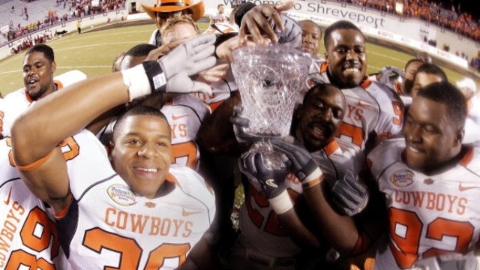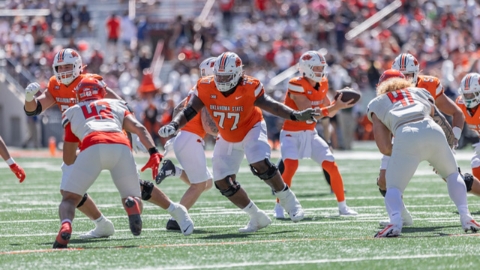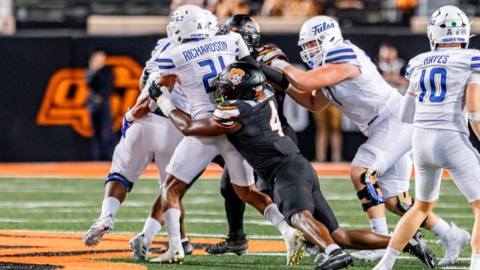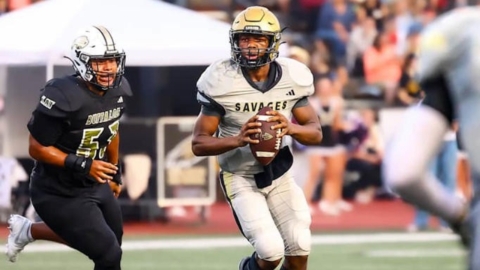Robert, I find this stmt by you very odd. For someone who tries to present himself as the quintessential ethical journalist, why did you feel the need to 'call out' Pistols Firing and Marshal Scott in your article? Seriously, 'who asked the question' is irrelevant to the main point that Gundy simply prefers to not discuss injuries/practice status etc .... it really appears as an opportunistic play by you to take a 'suttle dig' at a fellow journalist. You are better than that ....
Gundy Talks Not Talking Injuries and Man Coverage from Loss at TCU
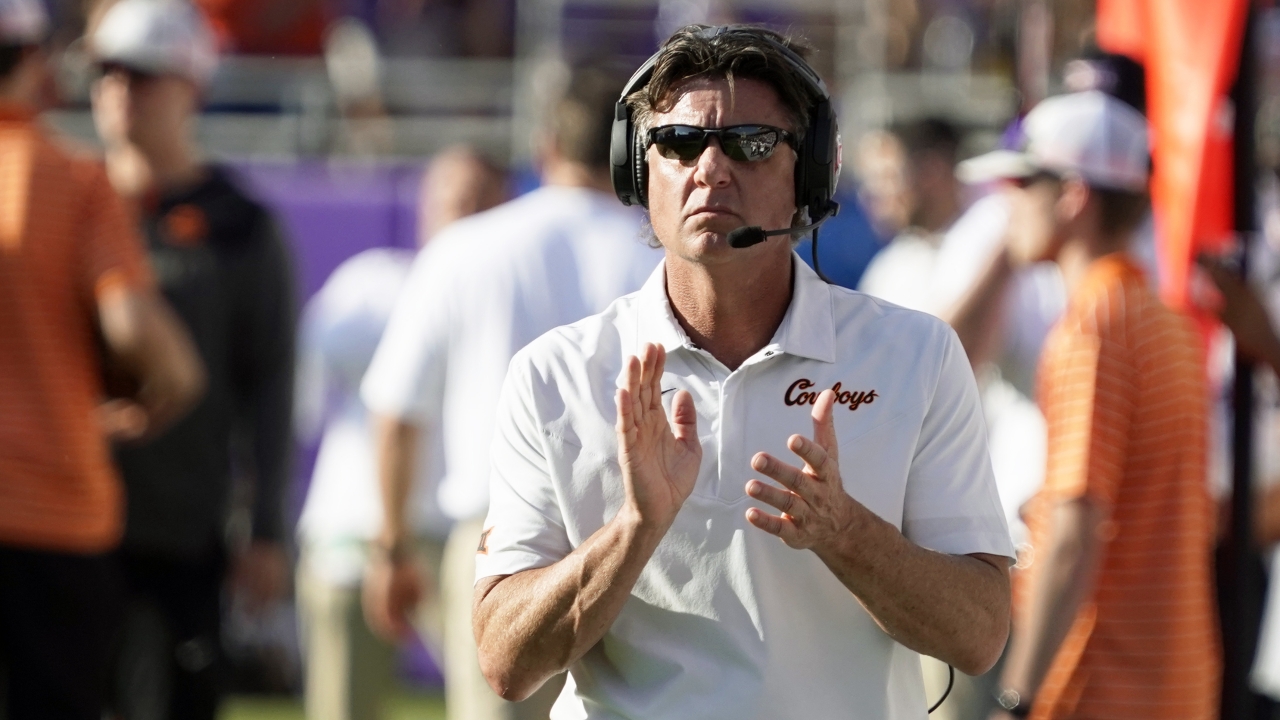
STILLWATER – It is an age-old problem with the sport of football. It is a physical sport and despite what old-times might say as they explain that the game doesn’t allow the big hits that used to be allowed – think the Philadelphia Eagles Chuck Bednarik knocking out the New York Giants Frank Gifford (Google it or look it up on YouTube) – but the fact is players now train year round with better strength and training methods, so the athlete doing the hitting and being hit are bigger, stronger, faster than ever before. Coaches don’t want to reveal injuries. They don’t want to give the competition any potential advantage in the way they practice and prepare. The NFL has rules about reporting injuries, but college football does not. Oklahoma State had a few heading to TCU last week and safe to say the Horned Frogs didn’t know. Rumors maybe, but unconfirmed, so TCU could not act upon those in their preparation.
The media is going to ask and for the second week in a row Marshall Scott of a competing website, Pistols Firing, made the inquiry.
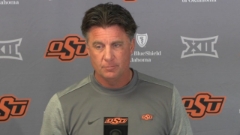
“Let’s do ourselves a favor, y’all don’t ask me about injuries and we won’t have a problem,” head coach Mike Gundy answered the inquiry at his weekly press conference. “Because I’m not going to tell you about injuries. I’m not going to tell you about who practices and who doesn’t. You wouldn’t reveal your hand either. It’s nothing personal, but I’m not going to talk about who practices and who doesn’t practice just because it’s not fair and it’s not smart on my part.”
Gundy also said, and I can vouch, that the players don’t like for that information to be out there. They have reasons. They especially don’t want opponents knowing what injuries they are nursing and may be playing through. Quarterback Spencer Sanders is one that doesn’t want that information out.
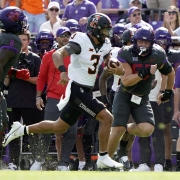
‘The players don’t like it,” Gundy said. “They don’t like people knowing when they practice, don’t practice. You have some guys that have potential NFL they don’t want (it out) even though they might know, they might not know, they don’t really like it either. And it’s not smart to show our hand.”
Many years back, I adopted a policy of not giving exact injuries out on any player that is playing in the game or gets hurt in the game and returns. We just give their status like they are out, being evaluated and may return, or will return.
Gundy then was asked why ABC and their sideline reporter Molly McGrath got the information from Gundy prior to kickoff. The Cowboy Radio Network had the information, correctly, in the pregame. The radio network gets it with the stipulation of when it is released. One aspect as to why radio and television broadcasts get it is they release it after a competitive advantage in preparation is gone. Both entities also pay big monetary media rights to the conference or to the school or both.
Gundy did explain his conversation with ABC/ESPN’s McGrath.
“So, what happened is, Molly (McGrath) came and got me right before kickoff, and she said we know that Spencer did not practice, we know this, we know that, about seven other things, and what I should have told her was that those aren’t things that I discuss, and I will in the future. In fact, we should probably put that out from our own department, that way we don’t have that issue. That was a mistake on my part now that you bring it up, but it was different because it was 20 minutes before kickoff versus talking about it during the week. I should have said the same thing to her I do the local press, just say, ‘Hey, those aren’t things I talk about.’ That way it’s fair to everybody. I would say that’s a good point.”
Now on a football point, I was concerned with why Bryson Green did not have a catch. He had, officially, three targets. One was a pass to the end zone in the second quarter and he ended up playing defensive back and breaking it up as corner Josh Newton had inside position on him. He admitted to me that TCU played more man than they had seen and pressed him at the line of scrimmage more than any opponent this season. Gundy was asked about what TCU was doing. It is a new day and time with Gary Patterson gone and now the chief defensive analyst at Texas.
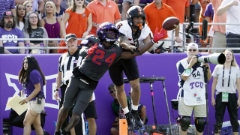
"They got some carry-over there with what they've done with Coach Patterson there,” Gundy said. “I mean those guys were pretty good at what they do on defense and the guy (Joe Gillespie) that went from Tulsa to there is a good football coach.
"We played okay,” Gundy continued. “Man is, you know, you obviously have to be able to defeat, but you can play man and be one-dimensional defensively knowing that if you feel like you can hold up against the run in man and the safeties can kind of cheat and help man, it's a different way of playing man. Instead of just saying I have you and there is no help behind me. (a little like poach coverage) That is a whole different cat. They played some of that when they didn’t think we could run the ball and it made us one-dimensional."
This week it is Texas and as mentioned, Patterson is down there and having watched the Longhorns on defense they are running a lot more 4-2-5 personnel (the defense that Patterson invented and is known as the father of) and they are playing more zone, more cover four behind it. That too is a Patterson trademark.
We’ll see if Texas sticks with that or tries to copy what they see on tape from TCU.
